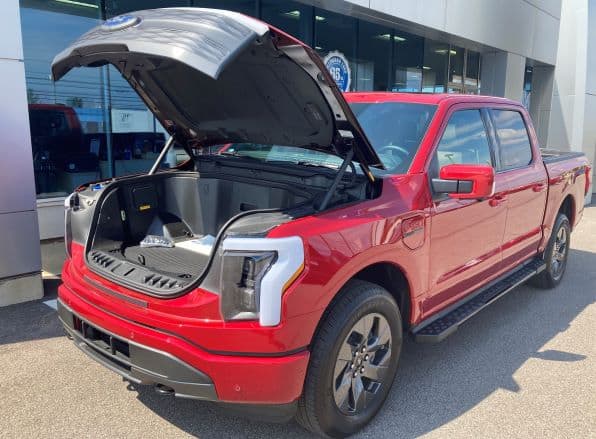
By Anshul Gupta
What’s the rapidly growing trend that Germany, Washington State, New York City, Ithaca, Montreal, and now the City of Beacon have joined?
In all these places, new homes and small buildings will stop installing most appliances fueled by polluting methane gas by year-end, extending the practice to larger buildings within three years or less.
Energy, climate, and building experts from municipalities to states to nations are all reaching the same conclusion that the most cost-effective and energy-efficient way to tame the health- and climate-destroying pollution from burning fuels in buildings and vehicles is to power them with electricity. Electric vehicles and heat pumps use only a fraction of the energy of their fuel-based counterparts and will see their environmental footprint continue to decline as the electric grid transitions to cleaner generation.
Like most climate solutions, eliminating combustion also comes with tremendous public health benefits due to reduced pollution. New York currently leads the nation in premature deaths from pollution caused by burning fossil-fuels in buildings that disproportionately impacts people with lower incomes, people of color, pregnant women, children, and older adults.
With the US becoming the world’s largest exporter of liquified natural gas, we now see both gas and gasoline prices soar in response to geopolitical disturbances. EV sales are already booming because owners prefer their handling, fuel efficiency, and low maintenance. Many builders and home buyers are choosing all-electric buildings that are superior in comfort, health, affordability, and emissions.
None of these benefits have prevented the fossil-fuel industry and its allies from attempting to sow fear, uncertainty, and doubt about our clean energy future with culture wars over gas stoves and scaremongering over grid capacity and reliability.
Research highlighting the health risks from gas stoves has been accumulating for decades. American Medical Association, American Lung Association, NYS Public Health Association, the Asthma and Allergy Foundation of America, and all NYS chapters of the American Academy of Pediatrics deem gas stoves a health hazard, particularly as asthma triggers for children. A recent public statement by a US Consumer Product Safety Commissioner just served to bring a long standing issue into limelight that some saw as an opportunity to help spark an anti-electrification backlash.
New York’s climate scoping plan recommends a prohibition on new gas stove installations starting in 2035. The provocateurs of the controversy seem to be missing the point that by next decade, New Yorkers may want a gas stove as badly as they want lead paint or asbestos in their homes today. According to the Energy Information Administration, more than a quarter of US homes are already all-electric and a majority of Americans do not cook on gas.
Major utilities like Con Edison support electrification of our transportation and buildings and are confident in the electricity generation, transmission, and distribution systems to keep pace with the demand. Our electric grid is stressed in the summer while the heat pumps add to the winter electricity demand. Programs like SmartCharge help steer EV owners’ charging behavior towards off-peak hours.
Cold-climate heat pumps and EVs would be just fine in upstate New York; much-colder Montreal’s ban on fossil fuels in new construction starts next year, and 80% of new cars sold in Norway are now 100% electric. By the time the climate law’s mandates fully take effect in the middle of the next decade, these technologies will be much cheaper and more versatile with advances in microgrids and vehicle-to-grid and vehicle-to-vehicle charging.
Even fossil-fueled heating doesn’t work during power failures without expensive generators. Electrification of our homes and vehicles actually has the potential to improve safety. Just like we stock up on groceries before storms, we’ll be able to stock up on electrons. A fully charged Ford F-150 Lighting can power basic cooking and heating equipment for 2–3 days in an emergency. Anyway, the climate plan doesn’t prohibit backup generators or pellet stoves.
On the road, a half-charged battery of a stranded EV can run the seat warmers for a couple of days – something that will deplete a conventional vehicle’s fuel in hours even if a snow-covered tailpipe doesn’t turn it into a lethal gas chamber first.
During the holiday blizzard in the Buffalo area, four people died in gasoline powered cars, at least 11 in their homes with fossil-fueled heating that doesn’t work in power outages, and one from carbon monoxide poisoning. Generators couldn’t keep up with blowing and drifting snow. A clinic was damaged from a catastrophic failure of their gas heating system. During the same cold snap, and also amid the terrible 2021 Texas winter storm, widespread gas network failures shut down power plants and caused millions of downstate customers to receive emergency warnings to curtail heating. Hundreds of residents of the New York City Housing Authority are without gas, some for weeks and months, due to dangerous leaks.
While power failures may not warrant delaying electrification, they indeed are a cause for serious concern. No amount of gas can help with electrically powered medical equipment, for instance. The frequency and duration of storm-related outages have been creeping up due to the worsening climate crisis and lackadaisical maintenance of our power distribution infrastructure. Inadequate winterization of substations caused widespread power outages in the Buffalo area during the historic Christmas blizzard. Our aging grid needs significant investments regardless of our climate goals.
Similarly, electrification isn’t just about the climate; it’s also about doing more with less, more cleanly, more healthfully, and more reliably. Instead of assailing this beautiful future with disinformation and divisiveness, let’s use beneficial electrification as a reason to unite for cleaner, safer and healthier energy and demand a robust, world-class electric grid.
Westchester resident Anshul Gupta is a steering committee member of the NYS chapters coalition of the Climate Reality Project.





